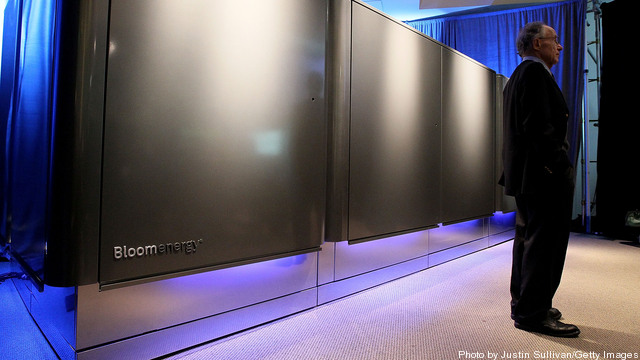
The intermittent nature of solar power has long been its most obvious weakness. What happens when the sun stops shining? People still need power.
One California-based solar company, BrightSource Energy, says it has developed a way to solve the problem. On Monday the company announced that it will be including its SolarPLUS thermal energy storage technology to several of its concentrated solar power (CSP) solar plants. The storage units will allow power from the sun to be stored for the evening when the sun is no longer shining but demand is up. Keep reading →









